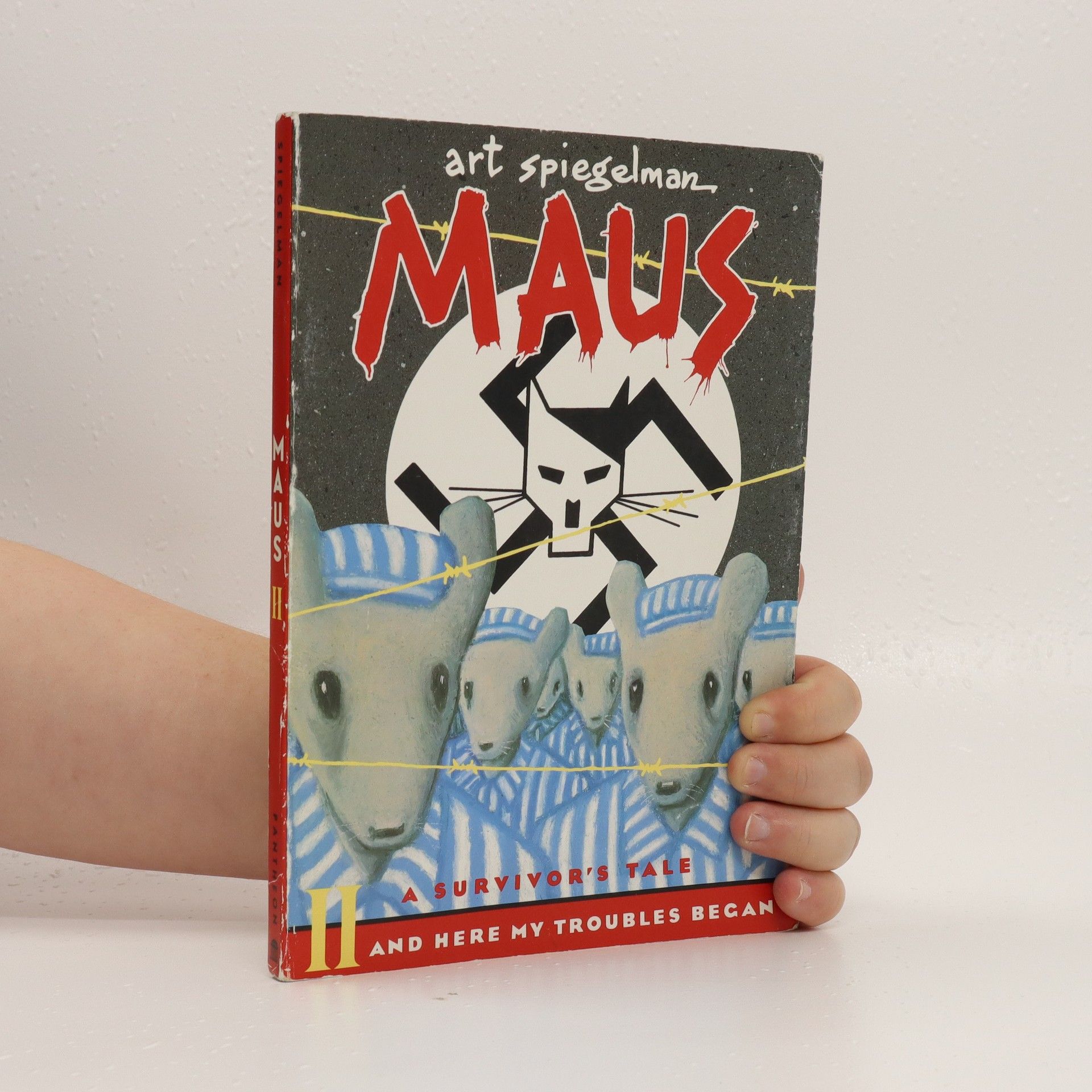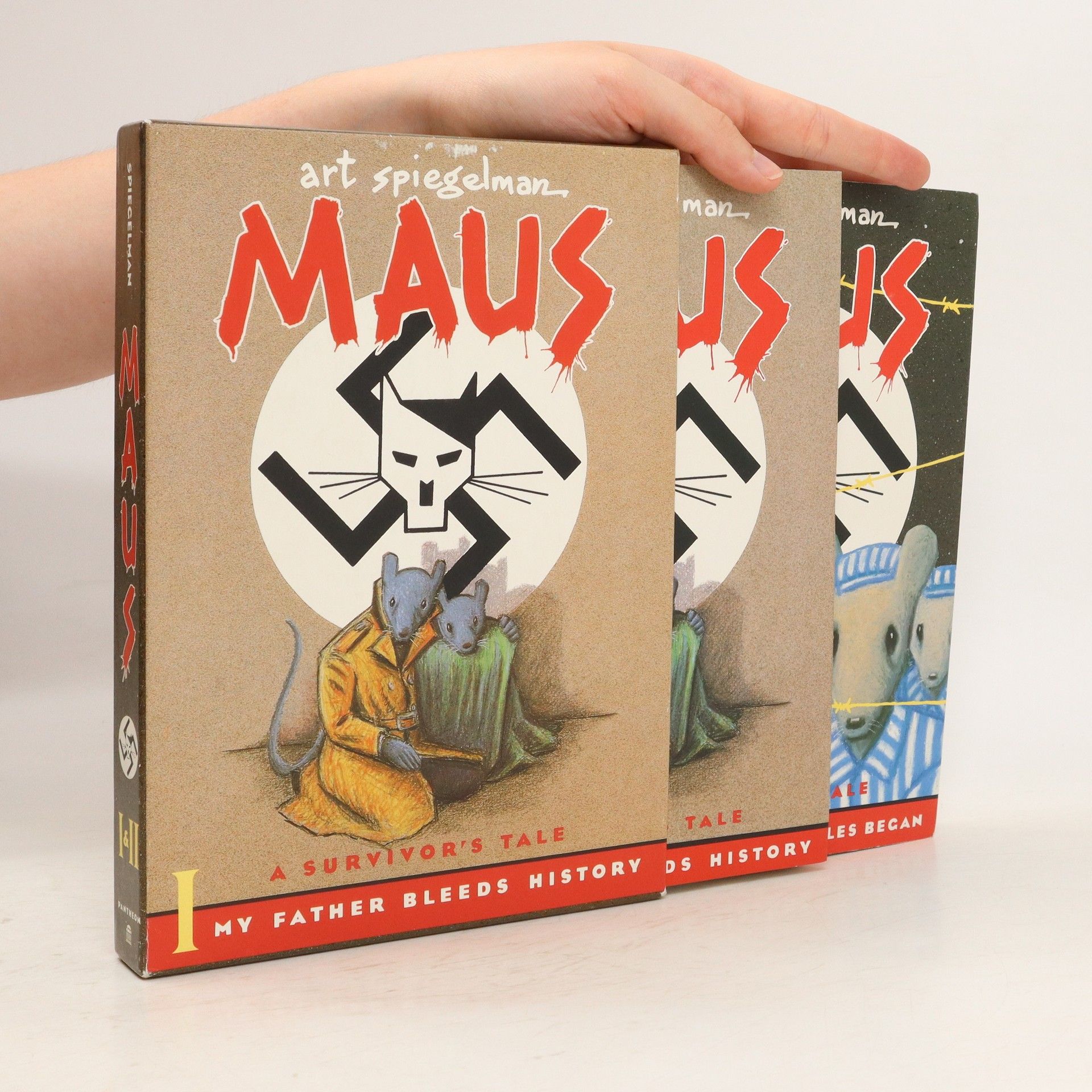Maus I + II
- 304 pages
- 11 hours of reading
The author-illustrator traces his father's imprisonment in a Nazi concentration camp through a series of disarming and unusual cartoons arranged to tell the story as a novel.
Art Spiegelman is a comics artist, editor, and advocate for the comics medium, best known for his Pulitzer Prize-winning comic memoir. His work often delves into complex themes, utilizing the unique visual power of comics to explore them. Through his art, he seeks to push the boundaries of what can be expressed in the medium. His approach is characterized by depth and introspection.







The author-illustrator traces his father's imprisonment in a Nazi concentration camp through a series of disarming and unusual cartoons arranged to tell the story as a novel.
The bestselling second installment of the graphic novel acclaimed as “the most affecting and successful narrative ever done about the Holocaust” (Wall Street Journal) and “the first masterpiece in comic book history” (The New Yorker) • PULITZER PRIZE WINNER • One of Variety’s “Banned and Challenged Books Everyone Should Read” A brutally moving work of art—widely hailed as the greatest graphic novel ever written—Maus recounts the chilling experiences of the author’s father during the Holocaust, with Jews drawn as wide-eyed mice and Nazis as menacing cats. Maus is a haunting tale within a tale, weaving the author’s account of his tortured relationship with his aging father into an astonishing retelling of one of history's most unspeakable tragedies. It is an unforgettable story of survival and a disarming look at the legacy of trauma.
A survivor's tale
Maus is a haunting tale within a tale. Vladek's harrowing story of survival is woven into the author's account of his tortured relationship with his aging father. Against the backdrop of guilt brought by survival, they stage a normal life of small arguments and unhappy visits.
'Spiegelman has turned the exuberant fantasy of comics inside out by giving us the most incredible fantasy in comics' history: something that actually occurred. MAUS is terrifying not for its brutality, but for its tenderness and guilt' New Yorker MAUS is widely renowned as one of the greatest pieces of art and literature ever written about the Holocaust. It is adored by readers and studied in colleges and universities all over the world. But what led Art Spiegelman to tell his father's story in the first place? Why did he choose to depict the Jews as mice? How could a comic book confront the terror and brutality of the worst atrocity of the twentieth century? To celebrate the 25th anniversary of the book's first publication, MetaMAUS, prepared by the author, is a vital companion to the classic text and includes never-before- seen sketches, rough and alternate drafts, family and reference photos, notebook and diary entries and the transcript of his interviews with his father Vladek as well as a long interview with Art, in which he discusses the book's extraordinary history and origins. The book includes a brand new DVD packed with extra images, video and commentary.
The book features a charming and playful puppy brought to life through engaging words and illustrations. It captures the joyful essence of a puppy's antics, inviting readers into a whimsical world where the playful spirit of a dog shines through. This delightful combination of storytelling and visuals creates an immersive experience for young readers, celebrating the innocence and joy of puppyhood.
NATIONAL JEWISH BOOK AWARD WINNER • Visually and emotionally rich, MetaMaus is as groundbreaking as the masterpiece whose creation it reveals • Featured in the documentary Art Spiegelman: Disaster Is My Muse In the pages of MetaMaus, Art Spiegelman re-enters the Pulitzer Prize–winning Maus, the modern classic that has altered how we see literature, comics, and the Holocaust ever since it was first published decades ago. He probes the questions that Maus most often evokes—Why the Holocaust? Why mice? Why comics?—and gives us a new and essential work about the creative process. Compelling and intimate, MetaMaus is poised to become a classic in its own right.
Art Spiegelman's striking black-and-white illustrations bring a fresh intensity to Joseph Moncure March's 1928 poem, Wild Party. The dynamic page designs complement the poem's rhythmic, hard-boiled narrative, capturing the chaotic essence of a single night of excess. Celebrated for its raw and captivating nature, the work is described as both repulsive and fascinating, leaving a lasting impact on readers. This edition revitalizes a lost classic, making it compelling even for those typically uninterested in poetry.
Art Spiegelman's striking black-and-white illustrations breathe new life into Joseph Moncure March's 1928 poem, The Wild Party. The dynamic designs complement the rhythmic, hard-boiled narrative of debauchery, making it a captivating read even for poetry skeptics. Louis Untermeyer hailed it as a powerful, fascinating tour de force.
Introductory Essay by Art Spiegelman Commentary by Richard Merkin ABOVEGROUND FOR THE FIRST TIME As wry and raunchy as the subject it celebrates, this inspired volume introduces a new generation to the Tijuana Bibles, underground comic art form the 1930s, 1940s, and 1950s devoted to making sexual mockery of every sacred cow in the pasture. Folk art with a subversive edge, the Bibles are unveiled here with a hundred life-size reproductions.
'I was twelve years old the first time I walked on water . . .' So begins Mr Vertigo, the story of Walt, an irrepressible orphan from the Mid-West. Under the tutelage of the mesmerising Master Yehudi, Walt is taken back to the mysterious house on the plains to prepare not only for the ability to fly, but also for the stardom that will accompany it.